Minister of Information and Communications Nguyen Manh Hung said that to take advantage of the opportunity and turn Vietnam into a "dragon" and become a high-income developed country, there is no other way but to be in the leading group in digital transformation and green transformation.
Vietnam's strategic choice On the afternoon of May 28, in Hanoi, the Vietnam - Asia DX Summit 2024, with the theme "Digital transformation, green transformation, digital economic development", was officially opened by the Vietnam Association of Software and IT Services (VINASA). The opening session was attended by Deputy Prime Minister Tran Luu Quang, Minister of Information and Communications Nguyen Manh Hung and representatives of many domestic and foreign agencies, organizations and enterprises. Expressing his wish that the delegates attending this forum will be successful in the digital transformation and green transformation of their units, their country and the world, Minister of Information and Communications Nguyen Manh Hung affirmed: Digital transformation and green transformation will be the two most important transformations of the first half of the 21st century. These two transformations will fundamentally change the lives of all of us . Digital transformation and green transformation are twins, going together and supporting each other. If you want green transformation, you must use digital transformation, and if you want digital transformation, you must also use green transformation. “ These two transformations will also ensure a country develops rapidly and sustainably. Vietnam has identified digital transformation and green transformation as strategic choices. Digital transformation and green transformation are the main drivers of economic growth, ” emphasized Minister of Information and Communications Nguyen Manh Hung. 




Deputy Prime Minister Tran Luu Quang and Minister of Information and Communications Nguyen Manh Hung visited booths at the forum. Photo: Le Anh Dung
Based on analysis, providing specific statistics and convincing evidence, the head of the information and communications industry pointed out the urgency of digital transformation, economic development, and the use of green digital technologies. The country that transforms digitally faster will be richer. Green transformation is to avoid depleting resources. Green transformation is to protect the environment in which people live. According to Minister of Information and Communications Nguyen Manh Hung, if you want to develop quickly, you need digital transformation, if you want to be sustainable, you need green transformation. But both digital transformation and green transformation require digital technology, and the core digital technology is semiconductor chips. Minister Nguyen Manh Hung also informed that the Ministry of Information and Communications has completed the draft of the final version of the national strategy on semiconductor chips and is widely soliciting opinions. Also in the discussion at the forum, the Minister of Information and Communications emphasized: We are living in a special period, when the future is not on the extended path of the past, a singularity appears in the development curve of humanity, especially with the development of technology and artificial intelligence. " Taking advantage of this opportunity, Vietnam can become a dragon, a high-income developed country. And there is no other way but to enter the leading group in digital transformation and green transformation ", Minister of Information and Communications Nguyen Manh Hung stated his opinion. The head of the Information and Communications industry also pointed out that digital transformation and green transformation but in the middle group, Vietnam will not be able to change its national ranking. Because a new industrial revolution will only reward the pioneers, the pioneering countries.
Minister of Information and Communications Nguyen Manh Hung: "A new industrial revolution will only reward the pioneers and pioneering countries." Photo: Le Anh Dung
Minister of Information and Communications Nguyen Manh Hung suggested that delegates discuss more about institutional changes to pave the way for the widespread application of digital technologies. Because daring to apply, daring to take the lead in application and safe application will create development, and also create technological perfection. From the perspective of representing the digital technology business community, Chairman of the VINASA Founding Council Truong Gia Binh also assessed: Green transformation and digital transformation are inevitable trends in the world, towards sustainable development. According to the World Bank (WB), there are two issues when responding to climate change: adaptation and mitigation of change. To achieve green transformation, digital transformation is required, because digital technology helps accelerate both adaptation and mitigation; and digital technology itself needs to be greener because it consumes a lot of energy. “ Recently, digital transformation and green transformation have also been accompanied by an extremely important transformation, which is artificial intelligence transformation. With the advent of AI supercomputer technology, this transformation has created new sources of labor. Before we had software engineers, we now have artificial intelligence engineers. Artificial intelligence is entering every field,” Mr. Truong Gia Binh noted. According to Mr. Binh, in the context of positive transformation but also many challenges, Vietnam has an important advantage, which is the advantage of people and human resources . To take advantage of that advantage, the most important transformation of Vietnam in the coming time is human transformation. “ We need to find a way for Vietnam to have many people willing to commit to the IT industry, artificial intelligence, semiconductors, electric vehicles, digital transformation, green transformation. This commitment and transformation will help solve all the problems that Vietnam and the world are facing ,” Mr. Truong Gia Binh proposed. Vietnam is transforming digitally and greenly at a very fast pace. Sharing about the picture of Vietnam's digital economy, Mr. Tran Minh Tuan, Director of the Department of Digital Economy and Digital Society (Ministry of Information and Communications) said that the contribution to GDP of the digital economy is currently 16.5% according to data from the Ministry of Information and Communications. This figure will increase to 20% by 2025. In terms of structure, 60% of Vietnam's digital economy is in ICT enterprises, 40% is in the digital economy of industries and fields. However, the structure of the digital economy will shift when the proportion of the ICT sector will decrease to 20% while the digital economy of industries and fields will increase to 80% by 2030.
Mr. Tran Minh Tuan, Director of the Department of Digital Economy and Digital Society. Photo: Le Anh Dung
Adding more perspective, Ms. Dao Phuong Lan, Director of Investment for Southeast Asia at Temasek, said that Vietnam is the country with the fastest growing digital economy in Southeast Asia. The scale of the total value of goods and services (GMV) of Vietnam's digital economy is forecast to increase from 30 billion USD in 2023 to 43 billion in 2025. From a broader perspective, Southeast Asia is a region with a strong digital economy with good adaptability to fluctuations. The total revenue of Southeast Asia's digital economy will soon reach 100 billion USD with a growth rate of 1.7 times compared to GMV (218 billion USD). Despite difficulties in raising capital and divesting capital, Temasek is still optimistic about the future of Southeast Asia when the next wave of digital economic growth will appear. Despite the general pressures, Temasek believes in the long-term prospects of the Southeast Asian digital economy, including Vietnam. Sharing the story of green transformation, Mr. Le Viet Anh, Director of the Department of Science, Education, Natural Resources and Environment, Ministry of Planning and Investment (MPI) reiterated Vietnam's commitment to the world to bring net emissions to zero by 2030. When the commitment at the COP26 conference on climate change was approved, Vietnam quickly issued the National Action Plan on Green Growth. The National Plan on Green Growth detailed four groups of goals, namely reducing greenhouse gas emissions intensity, greening economic sectors, greening lifestyles and promoting sustainable consumption, and greening the transition process.
Mr. Le Viet Anh, Director of the Department of Science, Education, Natural Resources and Environment, Ministry of Planning and Investment. Photo: Le Anh Dung
Regarding the total investment for the effort to reduce net emissions to zero, there are currently many studies and calculations with different numbers. According to research by the World Bank, to achieve the green development goal, Vietnam needs to spend 6.8% of GDP, equivalent to 368 billion USD from now until 2040. If other indicators such as inflation are taken into account, the Ministry of Planning and Investment estimates that the investment cost will double this figure. This is a significant challenge for Vietnam in the process of promoting green growth. In that context, according to the representative of the Ministry of Planning and Investment, digital transformation will play an important role in implementing the green growth strategy and achieving the goal of net zero emissions. “ Digital transformation is the driving force and foundation for promoting green growth. Green growth must be based on modern institutions and governance, advanced science and technology, and digital transformation. Digital technology will help optimize resources, reduce carbon emissions, and promote clean technologies, ” said Mr. Le Viet Anh. Within the framework of the opening session, representatives of a number of agencies and enterprises such as Viettel, VNPT, MISA, FPT, VinFast and the Department of Information and Communications of Ho Chi Minh City shared practical experiences in digital transformation and green transformation at their units and localities as well as implementation for other enterprises and the community.| Taking place over 2 days, May 28 and 29, with 7 thematic conferences, exhibitions of digital solution platforms and trade connection activities, Vietnam - Asia DX Summit 2024 is expected to attract the participation of more than 2,000 delegates, leaders and experts from 17 economies in the region and 34 provinces and cities across the country. |
Vietnamnet.vn



![[Photo] Prime Minister Pham Minh Chinh receives Deputy Prime Minister of the Republic of Belarus Anatoly Sivak](https://vstatic.vietnam.vn/vietnam/resource/IMAGE/2025/4/2/79cdb685820a45868602e2fa576977a0)
![[Photo] Prime Minister Pham Minh Chinh receives CEO of Standard Chartered Group](https://vstatic.vietnam.vn/vietnam/resource/IMAGE/2025/4/2/125507ba412d4ebfb091fa7ddb936b3b)

![[Photo] General Secretary To Lam receives Russian Ambassador to Vietnam](https://vstatic.vietnam.vn/vietnam/resource/IMAGE/2025/4/2/b486192404d54058b15165174ea36c4e)

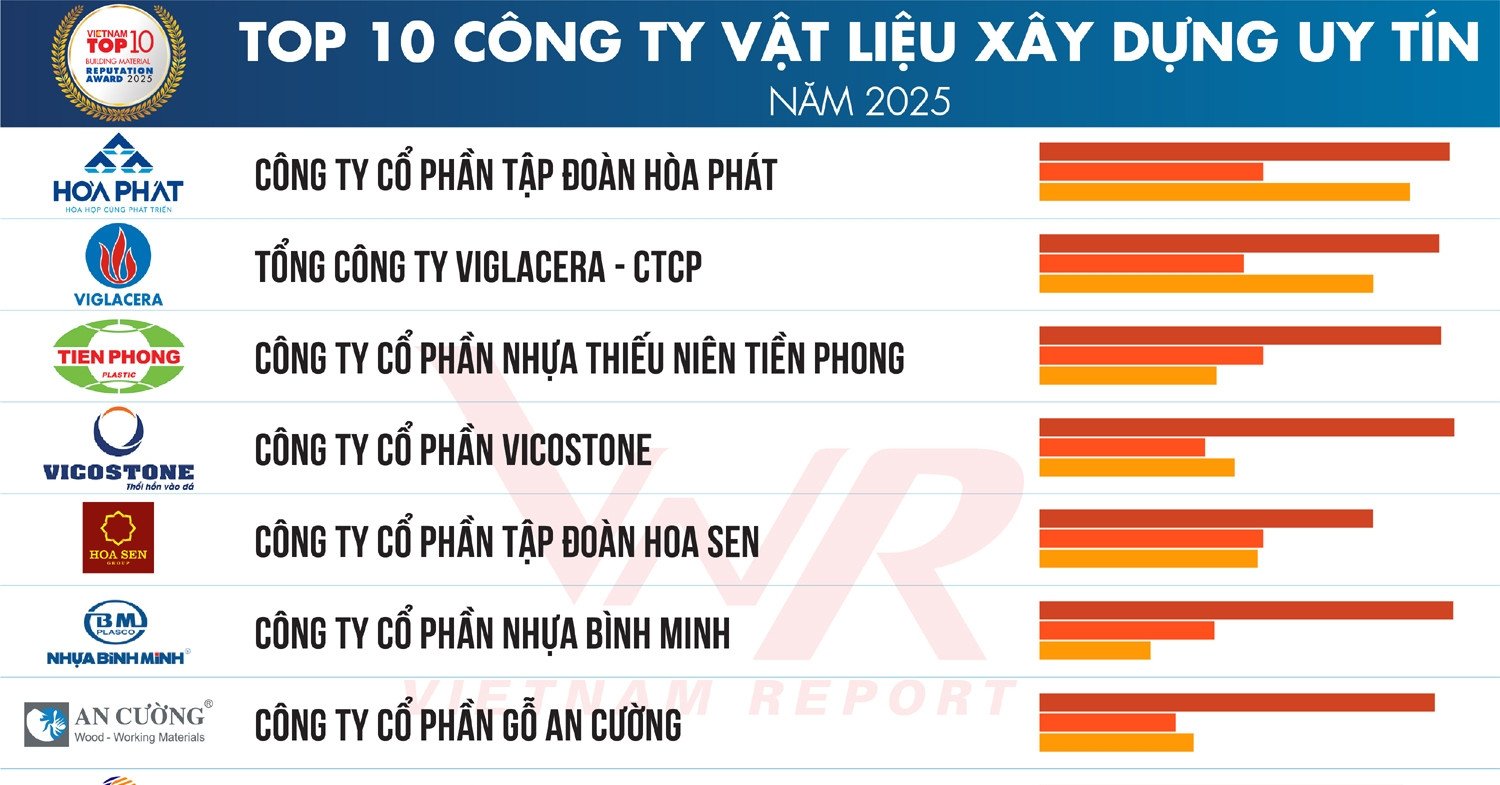

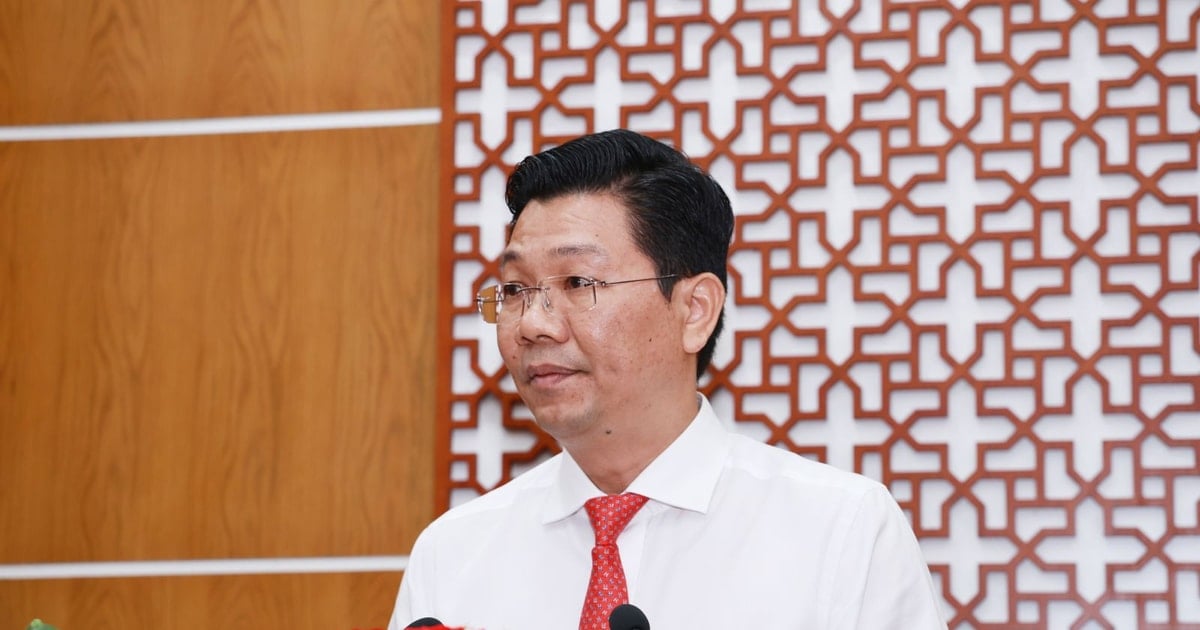





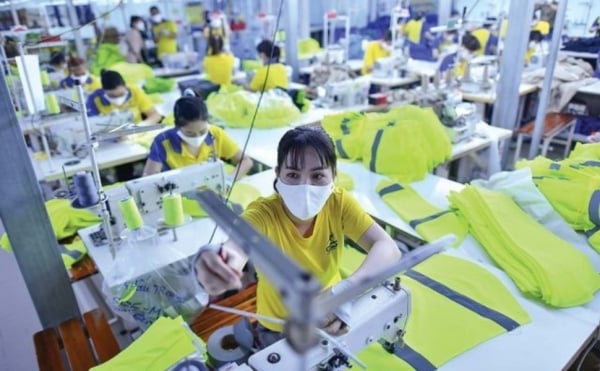













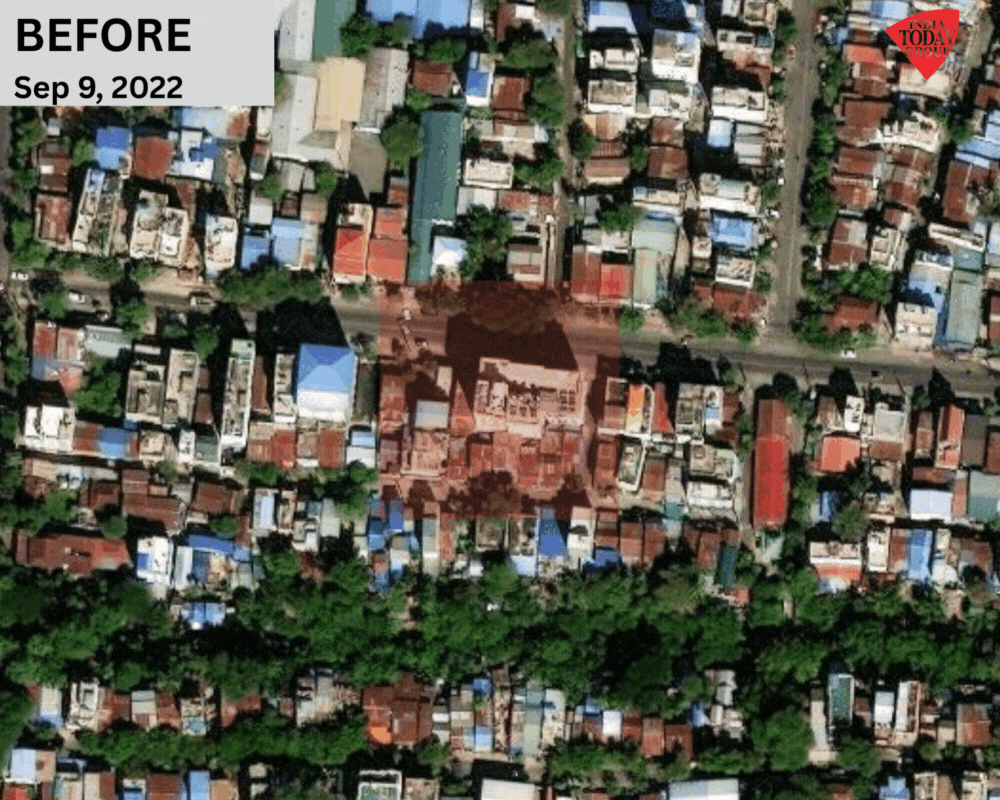












































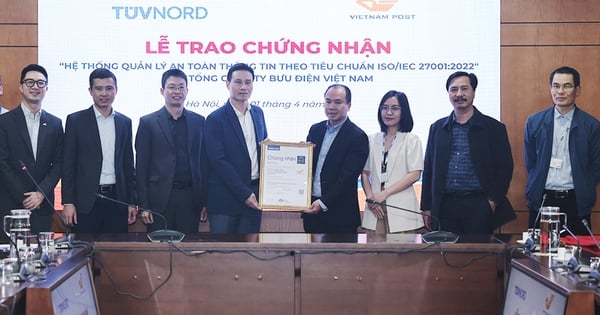


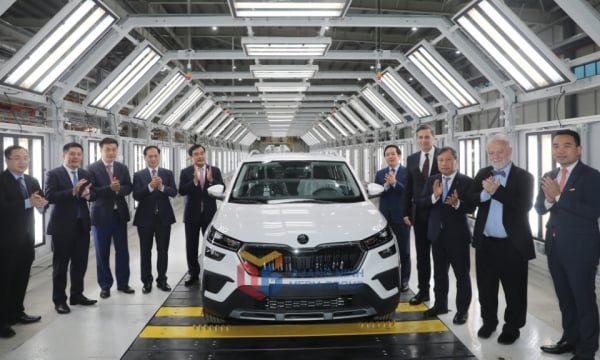
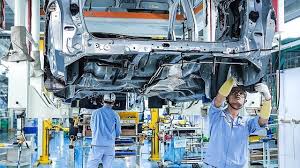

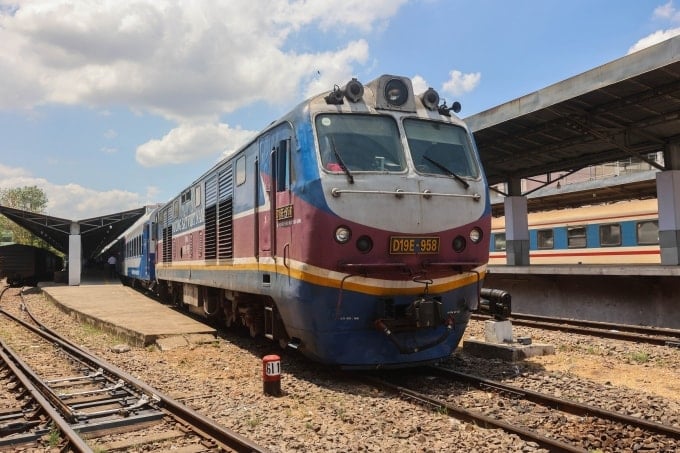


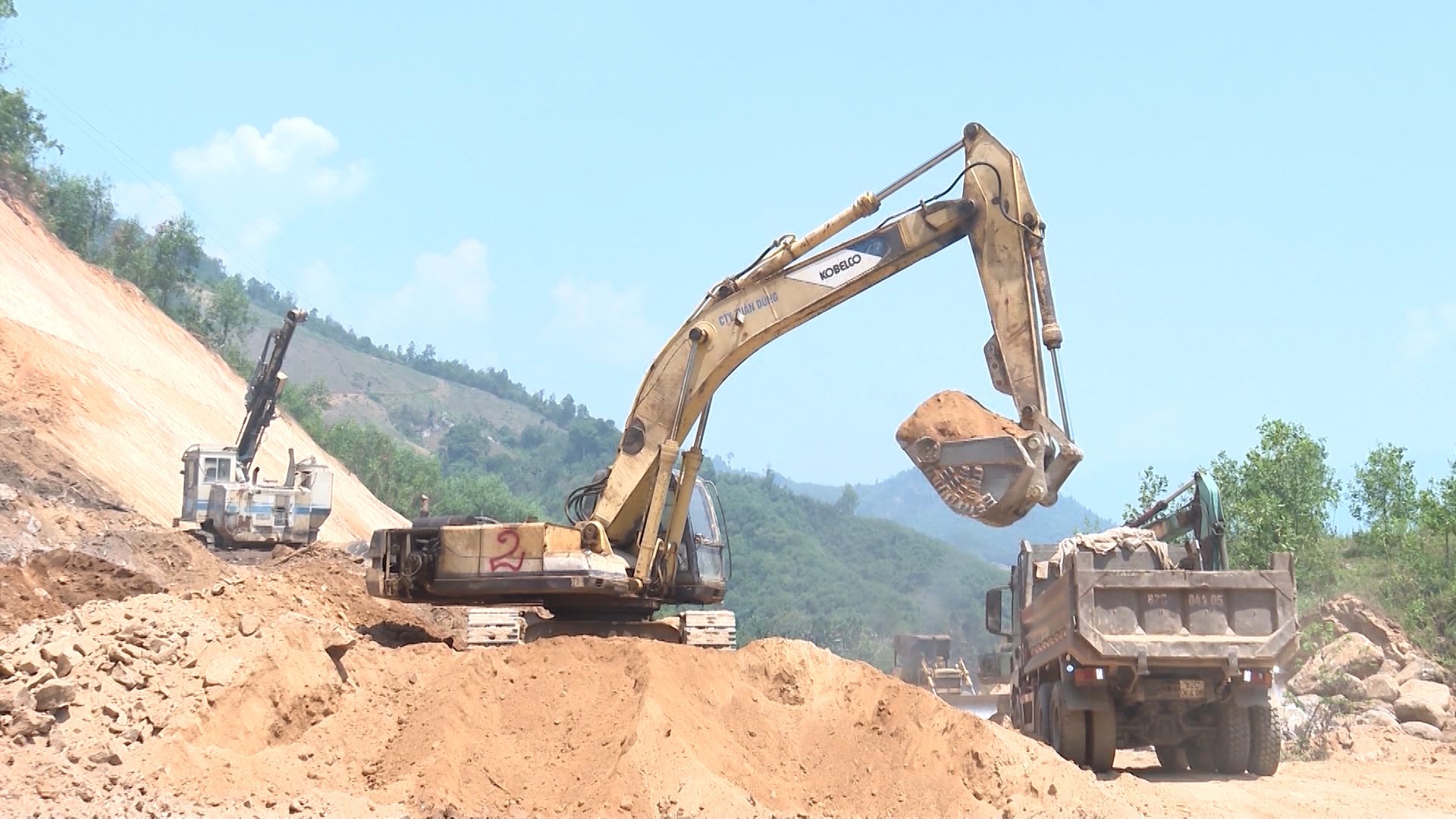











Comment (0)